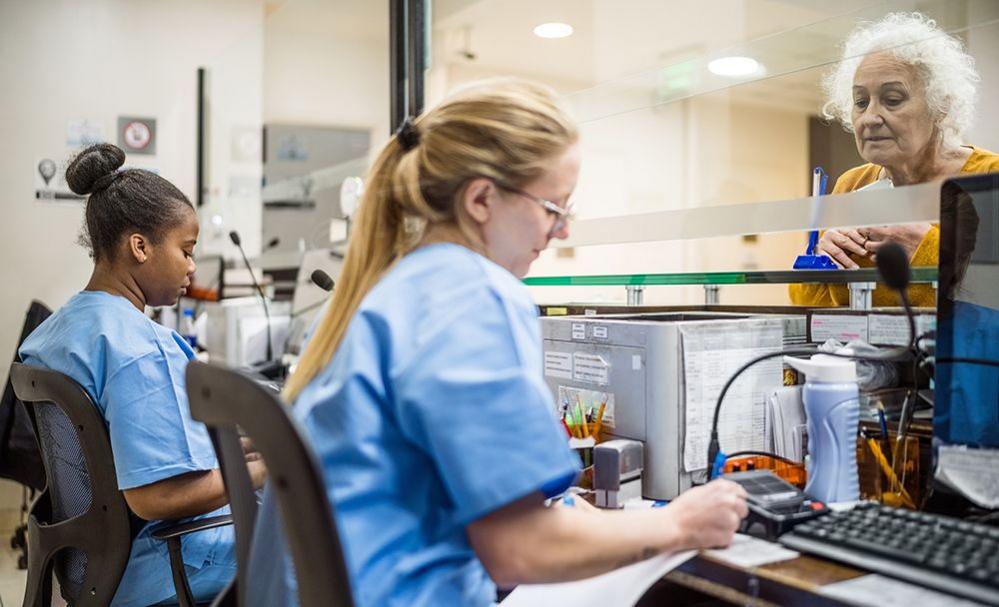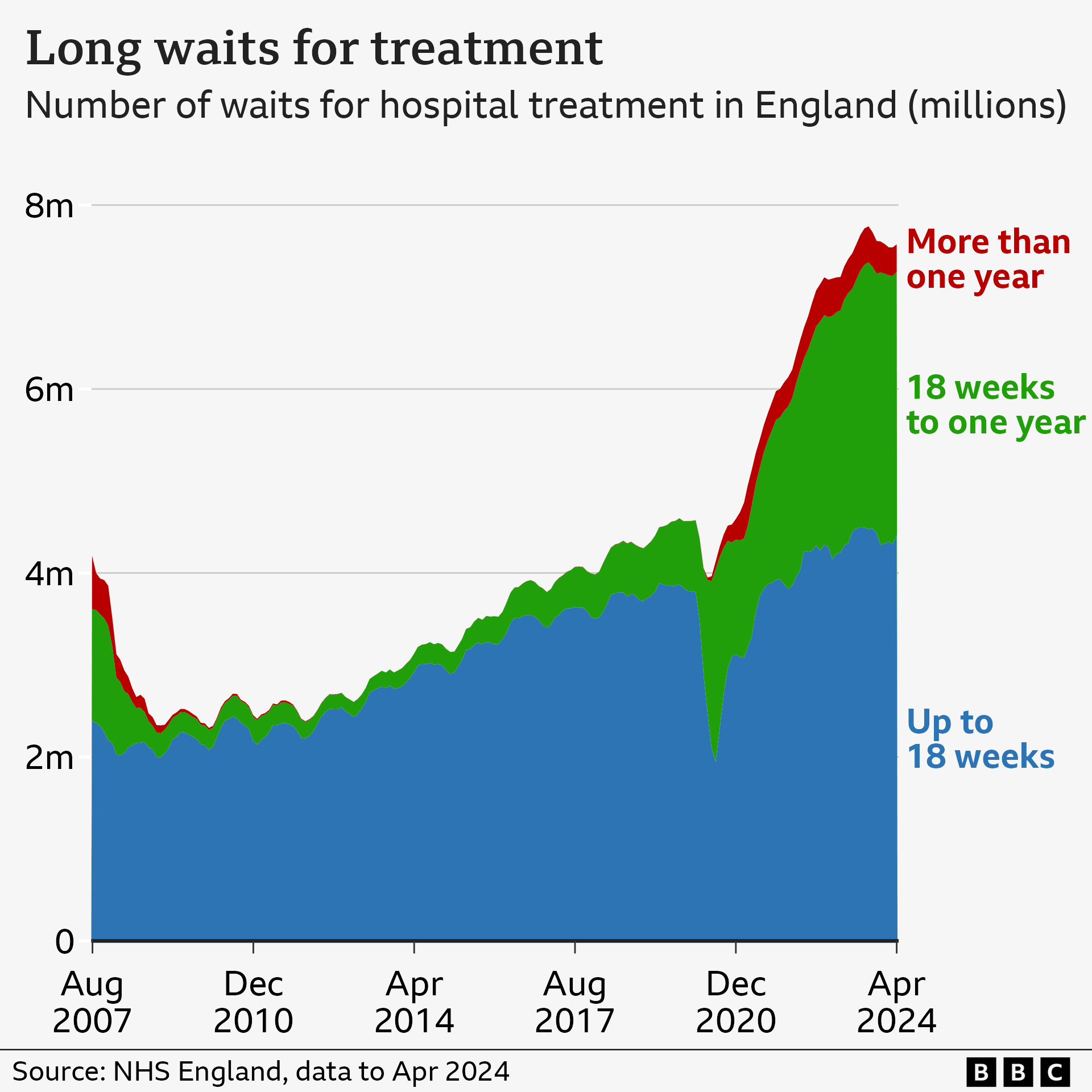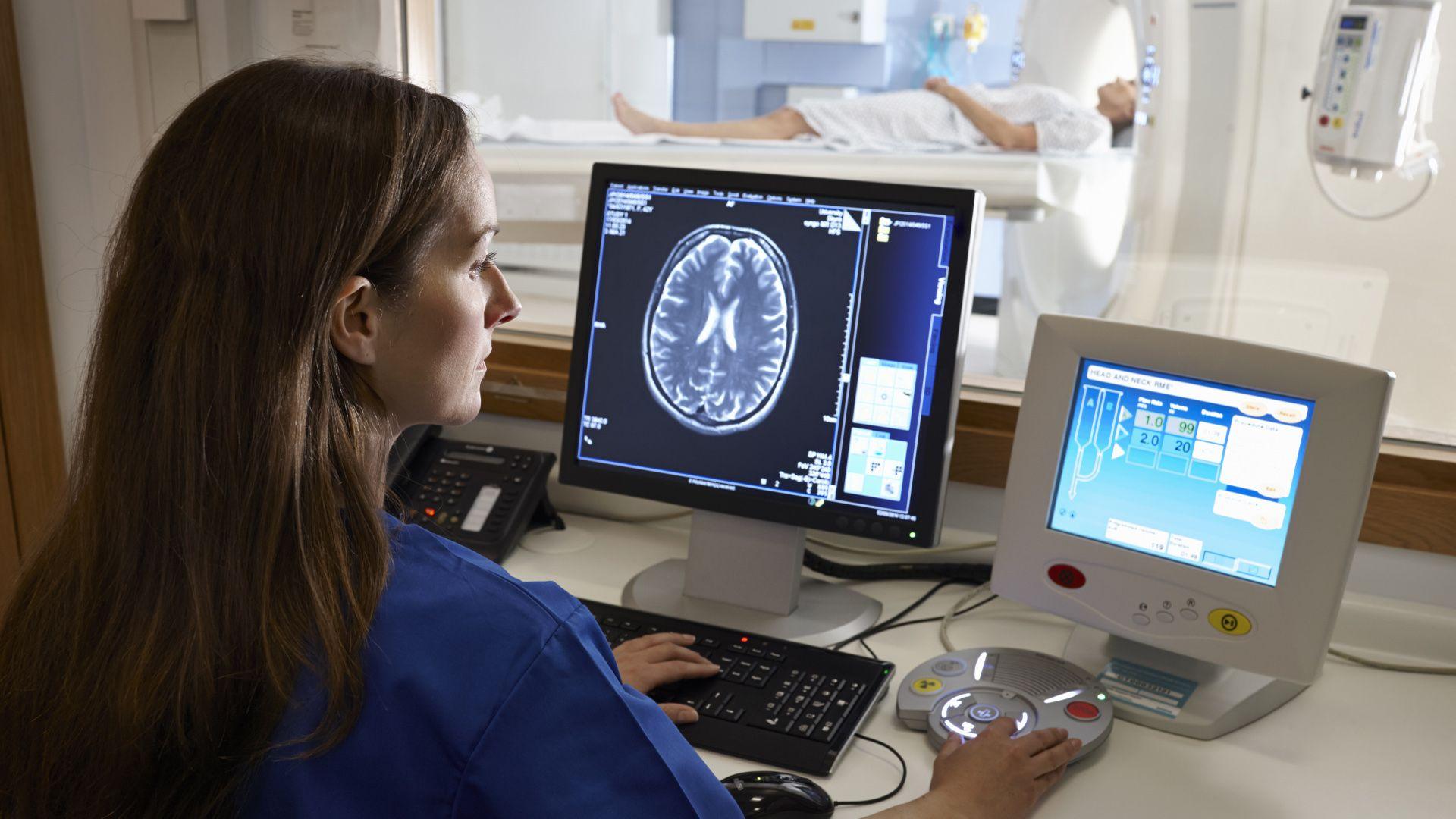England's hospital waiting lists rise to 7.57m

- Published
The hospital backlog in England has gone up slightly over the past month, latest NHS figures show.
The waiting list hit 7.57 million at the end of April, up from 7.54 million the previous month.
The numbers waiting for treatment has been a key election issue after the prime minister made it one of his five priorities for government.
There had been signs the waiting list was coming down. But despite the rise, it is still lower than the September peak of 7.77 million.
More than 300,000 of the waits have been for longer than a year.
In many respects the rise in the number of waits is not surprising. The size of the waiting list has in the past fluctuated month-by-month.
And modelling always predicted that once the rapid rises seen since the pandemic hit stopped, there would be a period where the waiting list would remain pretty flat.
But in the early weeks of this election campaign, Rishi Sunak has been claiming the waiting list has been falling.

One of those who has been left waiting is Mary Waterhouse, 72, from Lancashire. She started having osteoarthritis in her ankle in 2015 and then it began to affect her knee.
She has been on a waiting list for a knee replacement since January 2022, but her wait was complicated after they identified more problems.
“To be honest I feel like throwing in the towel at the moment, I’m 72 years old, I could do without wasting my life like this being stuck waiting.”
Deborah Alsina, chief executive of Versus Arthritis, said there were too many people with arthritis left living with "unacceptable pain".
“We hear from so many people who can barely move around their homes, are isolated from family and friends and cannot work or forced into early retirement.”
In other areas, waiting time targets for A&E and ambulance response times also continue to be missed.
Siva Anandaciva, of the King’s Fund, said the figures show the NHS is under “incredible pressure” despite spring and early summer traditionally being the quieter time of year.
He added: “We are seeing performance challenges that would have been unfathomable 10 years ago.
“It’s no surprise that the NHS is again at the top of many polls on what matters most to voters, as we head towards a general election.”
NHS England medical director Prof Sir Stephen Powis said demand across the board remained high.
He also warned the five-day strike by junior doctors at the end of this month was likely to cause “further disruption”.

The Royal College of Radiologists (RCR) has warned of increasingly common delays for cancer care across the UK
It comes as a report by the Royal College of Radiologists (RCR) has warned long waits for cancer care are becoming routine across the UK, with nearly half of all specialist cancer centres experiencing delays most weeks.
The RCR report was based on responses from senior managers at 60 specialist cancer centres in England, Wales, Scotland and Northern Ireland.
The survey, carried out in November 2023, found the number of centres experiencing severe delays had almost doubled in a year.
Managers at 47% of sites said patients needing chemotherapy and other cancer drugs were facing delays “most weeks or every week” - up from reports of delays at 28% of sites the previous year.
Centres reporting weekly delays to radiotherapy also nearly doubled, from 22% in 2022 to 43% in 2023.
Almost all clinical directors surveyed said workforce shortages were causing backlogs.
The college said there was a “staggering” 30% shortfall in radiologists and a 15% shortfall in clinical oncologists.
“We simply do not have enough doctors to manage the increasing number of patients safely, and this problem will only worsen as demand continues to rise and more doctors leave the NHS,” said RCR president Dr Katharine Halliday.
- Published13 June 2024
